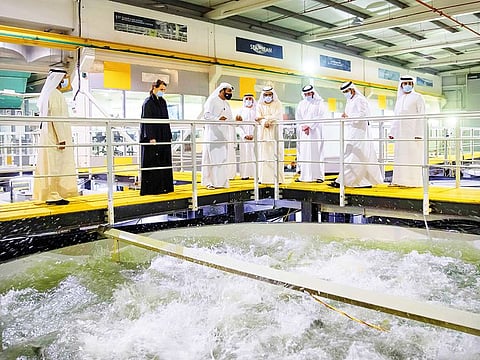UAE food security trends indicate safe, nutritious and sufficient future produce for citizens
Agriculture, farm markets and local food production rise with sound government backing

Having worked in the UAE F&B industry for over 10 years, I have seen a positive shift in the UAE’s agricultural and farm markets, which I believe is in correspondence to the UAE’s launch of the National Food Security Strategy 2051. The strategy aims to achieve zero hunger by ensuring access to safe, nutritious, and sufficient food all year round throughout the world.
However, during the pandemic years it became apparent that the UAE’s reliance on imports for food and agricultural products were not sustainable, especially when it came to meeting the country’s food security goals. The UAE experienced restrictions and a shutdown of borders, hindering the flow of heavily-relied-upon imports, which met the needs for several residents.
Additionally, this also raised concerns for all businesses that depended on imports. There were existing obstacles in the UAE’s agricultural sector before the pandemic, such as the scarcity of water resources, severe environmental conditions and soil salinity. However, the UAE always found innovative solutions to combat these challenges. That being said, these solutions were still not enough to battle the complications that arose with the pandemic, and it shook the foundation of the current food security strategies.
Support local, buy local
I believe though that the pandemic aided in further fostering the growth of the agriculture sector rapidly due to border restrictions and making use of the available, local resources. This eventually became an avenue for local businesses to market themselves using the catchphrase, Support Local & Buy Local, especially in the food industry. Several top retailers around the world, not just in the UAE, also joined this movement by including local products with the goal of boosting their local economy and helping combat the rise of global warming.
In terms of how selling local products is related to saving the planet or even the economy, statistics have proven that when you purchase locally, the money paid (majority of the time) stays in your local community and in return helps improve the economy. When it comes to impacting the environment, buying local produce also reduces the demand of transporting imported products. This helps reduce the greenhouse gas emissions and contributes to improving our carbon footprint.
Citizen participation, corporate interest
In my opinion, there is still the need for more awareness on the positive impact of buying local produce among UAE residents. I do see most corporate entities making strides with this initiative by not only promoting their local products and educating customers on why it’s important, but also partnering with government entities to help foster this sustainability goal. In addition, I believe the UAE government has made it easy for corporate entities, through efforts made to increase the use of modern technology, to farm easier and faster with access to these local products.
For example, Food Crowd’s partner Al Dahra, a prominent multinational leader in agribusiness, uses modern cutting-edge technology over traditional methods, which has helped unlock a high-level agricultural productivity using smart tools and platforms for precision farming.
Innovate for sustainability
I am positive that most F&B businesses across the region will continue to implement the National Strategy for Sustainable Agriculture, which aims to increase the efficiency levels of farms, increase self-sufficiency when it comes to certain agricultural crops and reduce water usage for irrigation. This may be through partnerships with suppliers that aligned with this strategy or internally by sourcing locally to help boost the economy.
The rise of more agritech farming solutions and continuous government initiatives in each Emirate that provide incentives to farmers such as 50 per cent subsidy on seeds, fertilisers and pesticides, as well as special loans to buy machinery and equipment, will further help provide a strong foundation for the future of sustainable agriculture in the UAE.

— The writer is Head of Marketing and E-commerce, Food Crowd, an online shopping platform founded in the UAE and that advocates sustainable local food production



